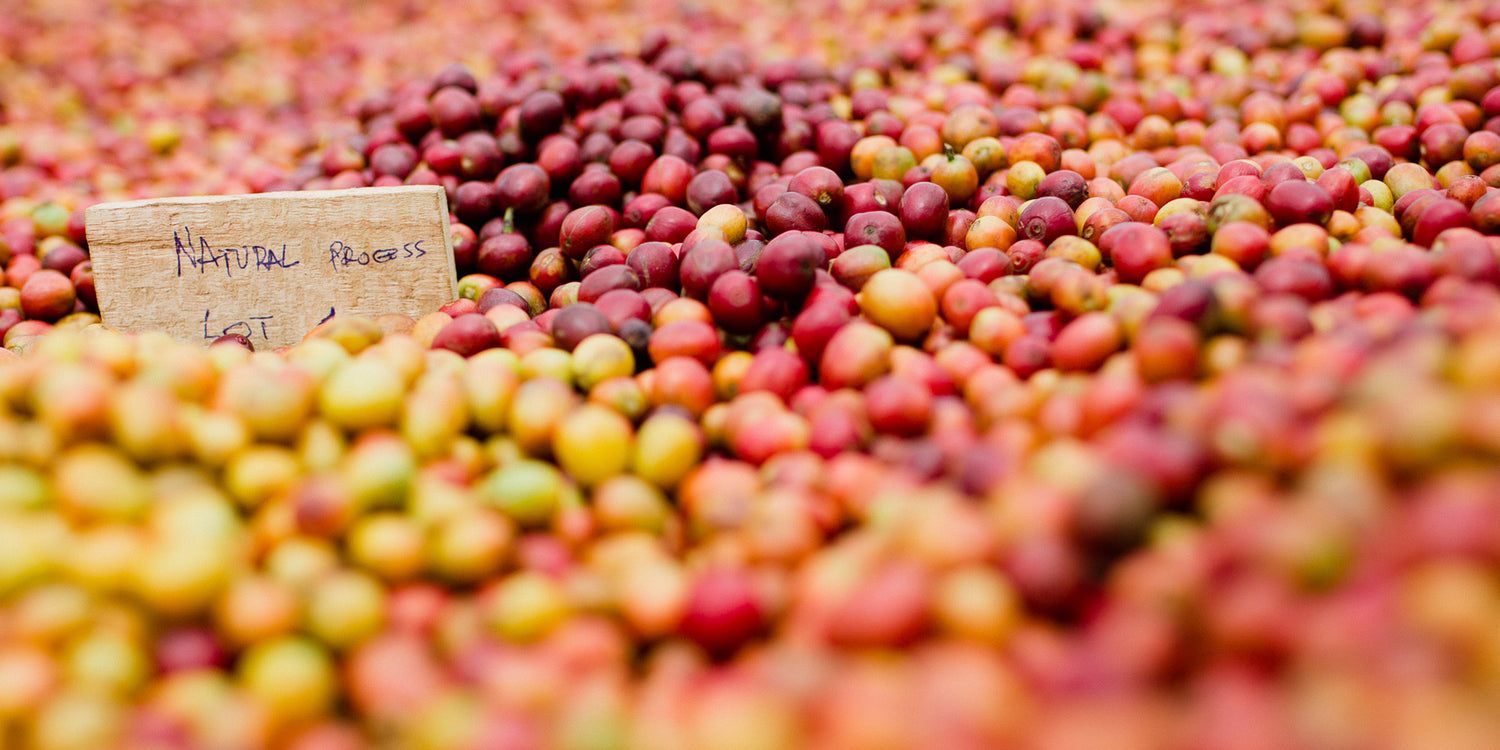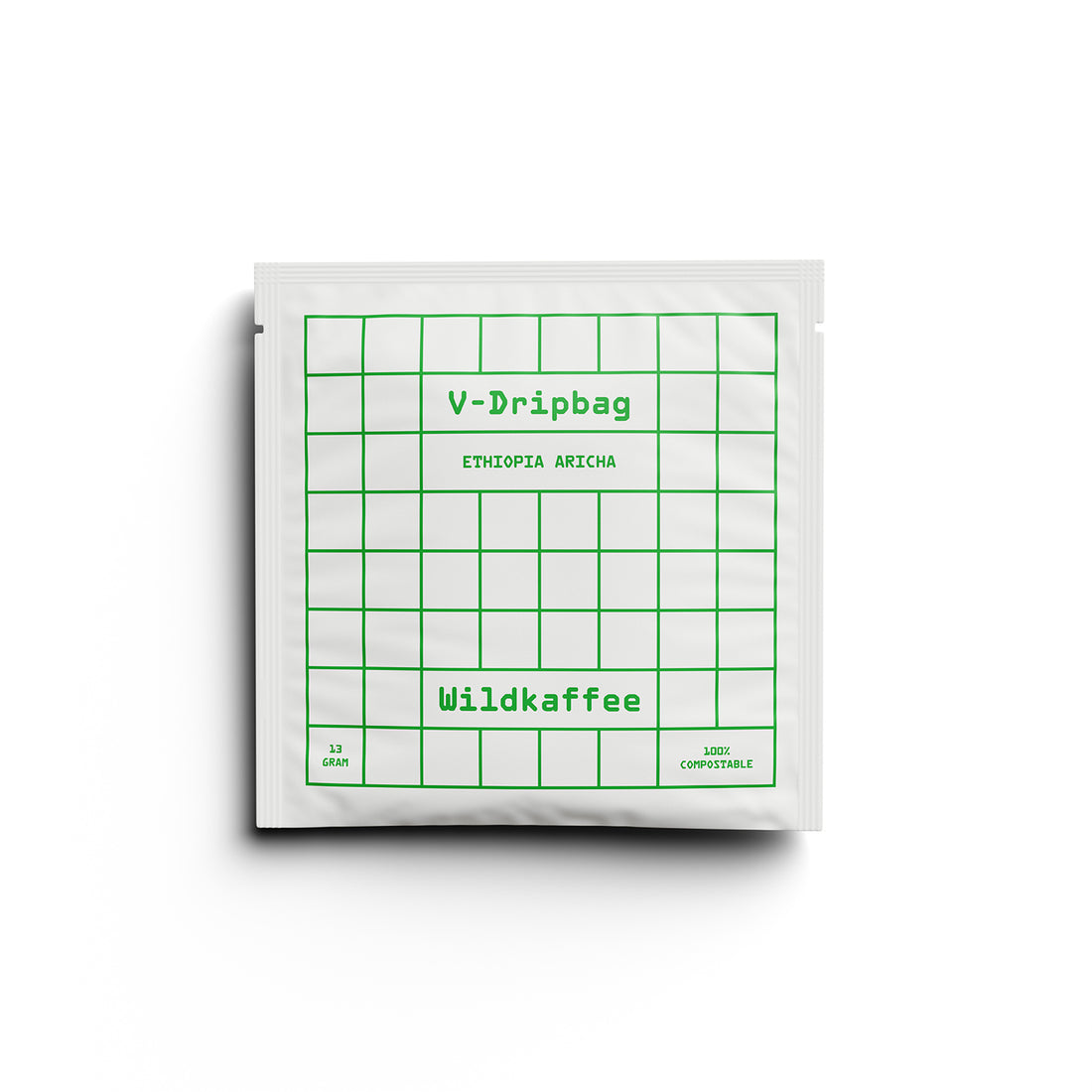What exactly is specialty coffee?
Here we should first look at the coffee market as a whole and make a fundamental distinction. After all, coffee is a natural product and comes in many different quality levels. Just as potatoes and apples, for example, come in all quality levels: inexpensive, lower-quality mass products that are produced and sold cheaply, as well as organically grown, carefully processed products that are sold in small quantities at higher prices. It's no different with coffee; roughly speaking, one could distinguish between industrial coffee and artisanal coffee. Industrial coffee is usually bought on the stock exchange – relatively cheaply – and roasted briefly in large quantities at high heat. And then there is high-quality, gently roasted artisanal coffee from small and medium-sized roasters like us. The coffee is bought directly from the producers at higher prices and roasted slowly at lower temperatures in smaller batches. But specialty coffee begins with cultivation.
The term "Specialty Coffee" – more than just good coffee
Specialty Coffee stands for coffee of exceptional quality and traceability. The term was coined in the 1970s by US pioneer Erna Knutsen . It refers to coffee that achieves a high level of flavor through special care at every stage of production—from the selection of the variety, through cultivation and processing, to roasting and preparation.
The definition: Specialty Coffee must achieve 80+ points
According to the Specialty Coffee Association (SCA), a coffee must achieve at least 80 out of 100 points in the cupping score to be classified as a "specialty."
Among other things, the following will be assessed:
- Aroma and taste
- Acidity and sweetness
- Body and mouthfeel
- Aftertaste & balance
- Cleanliness & Defects
This evaluation is carried out by professional tasters – so-called Q-graders – under standardized conditions.
Generally, the coffees tasted receive a rating between 60 and 100 points—the higher the score, the better the coffee. Anything below 80 is just coffee, up to 85 is very good specialty coffee, up to 90 is excellent, and 90 and above is outstanding specialty coffee.

What makes Specialty Coffee so special
As mentioned above, specialty coffee begins with cultivation: good coffee is generally grown free of chemicals (unfortunately, not all coffee is produced chemical-free). Our farmers also take care to grow the coffee as biodynamically as possible. Furthermore, only natural ingredients, mostly from the farm itself, are used in processing, such as fermentation. Only the best coffee cherries are used in processing, and the utmost care is taken when roasting these coffees.
Cultivation in selected regions
Specialty coffee is grown under ideal climatic conditions at specific altitudes – often in countries of origin such as Ethiopia, Colombia, Guatemala, or Kenya. There, microclimates, soil types, and varieties create unique flavor profiles. However, specialty coffee also comes from many other coffee-producing countries, where it has been grown under similarly favorable conditions.
Careful workmanship
After harvesting, the coffee cherries are carefully sorted, usually by hand, and then processed – either using washed, natural, or honey processing. These methods significantly influence the aroma and clarity of the cup. There are now many innovative variations of these basic methods, as well as completely new processing techniques, such as fermentation with the addition of yeast, as perfected by LOST ORIGIN Coffee Lab from Panama.
Traceability and transparency
Each batch can usually be traced back to the farm or cooperative. Details about cultivation altitude, variety, processing, and harvest date are often openly communicated on the packaging.
Sustainability and fairness
Many specialty coffee roasters emphasize direct trade or cooperate with partners who pay fair prices above the global market and support social and environmental projects. We ourselves founded the Coffee School Project, a social project in El Salvador. You too can help, for example, by donating a coffee plant and supporting reforestation in El Salvador.

Who produces and drinks specialty coffee?
Specialty coffee is usually produced by smaller farms or cooperatives that focus on quality over quantity. The coffee is roasted in small to medium-sized roasteries, often rooted in the so-called third-wave movement. It is consumed by discerning coffee drinkers who value taste, origin, and preparation – whether as filter coffee, espresso, or pour-over.
Why Specialty Coffee is worth your cup
- Complexity : Aromas of berries, citrus, chocolate and floral notes
- Freshness : Often available only a few weeks after roasting
- Variety : Different varieties, farms, roasting profiles
- Values : Supporting sustainable agriculture and fair pay
How is specialty coffee brewed?
There are a few things to consider. Important factors include the quality of the water used, especially the pH value, water hardness, and the minerals it contains. Tap water, for example, should be filtered at least once if you want to make coffee with it.
Other important aspects of coffee preparation include grind size, dosage, water temperature, and, of course, the brewing method itself. Depending on the preparation method, these variables change to ensure the perfect specialty coffee in your cup.
Conclusion Specialty Coffee
Specialty coffee begins with the plant and ends in your cup. Every step of the way to you is carried out with the highest quality. This means you get only the best beans with the finest flavor nuances… comparable to sparkling wine. You can get sparkling wine anywhere, but real champagne requires many steps and a lot of work from the grape to the bottle. The best thing about specialty coffee is that you can use it to make filter coffee, espresso, and all other coffee specialties. Just give it a try.




